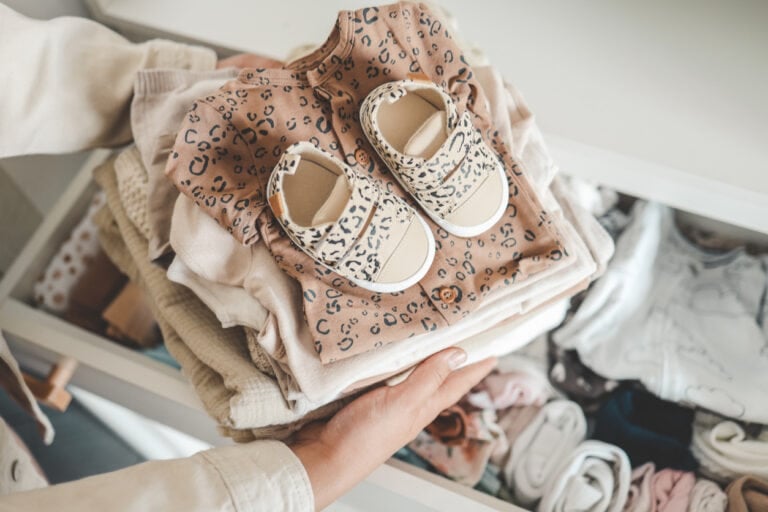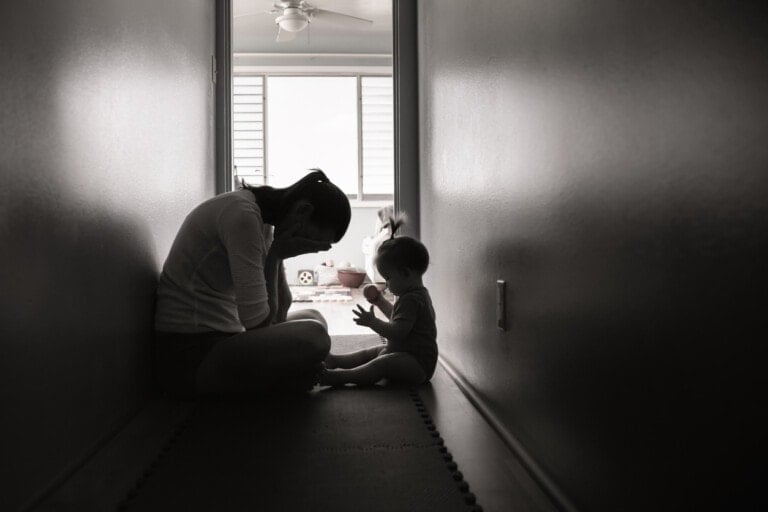Some of my closest friends are the finest people you will ever meet. Like a casting call out of a Hallmark movie, they are an upstanding group of ladies who happen to be mothers. All of them work hard to help, heal, and serve: a professional organizer, a homemaker, a writer, a wellness coach, a therapist, a hospital chaplain, a children’s book illustrator, a teacher, a spiritual advisor, and a holistic healer. My friends are compassionate, loving, and talented women.
They all have one other thing in common. They swear like sailors. I’m not talking about a “dammit” here and a “helluva” there. Nope. These women curse like drunk merchant marines on Friday night leave. Their favorite word across the board? Rhymes with duck.1 There’s also mother ducker, for duck’s sake, what the duck, duck that, and— well, you get it. Other popular swear words rhyme with itch, pass, nick, and hit and include variations and combinations of all the aforementioned words.
But, as moms, we should know better. Right? Duck, no.
Dear Autocorrect, It’s Never Duck . . .
First, I have to hand it to my mom. She was Mexican-American and yelled at us in Spanish from time to time. It didn’t mean much because I never really understood her angry Spanish. I think my mother said certain things in Spanish because she wanted the language’s emotional impact but didn’t want the damage it might cause. My older sister confirms that our mother never swore at us in either language, though she did tell us to cállate all the time.2 She was a class act.
I was a bookish child and decided to learn some Spanish on my own. While reading John Steinbeck’s Tortilla Flat, I came across some Spanish phrases. I went into the kitchen and loudly said, “What does chinga tu madre, piojo mean?” my father burst out laughing (he knew a little Spanish), and my mother spit out her Tab. “Don’t you ever say that again! Especially in front of your grandmother!” Lesson learned.
Why We Swear
Of course, many moms are under unbelievable amounts of stress, often bearing the burden of “invisible work” their male counterparts don’t even think about: planning childcare, being the school liaison, coordinating home projects, and planning for the future.3 All of this on top of working, serving on committees, being breadwinners, and working on their own career and educational progress. We are ducking exhausted.
During the quarantine, I spend much more time connecting directly with my friends in whatever way we can. We go through how we’re feeling, coping, and living on phone calls, video chats, and social media. Some days are good. Others, not so much. We find ourselves reacting to our isolation, our families, our lack of choices, the news, financial uncertainties, and the daily disruptions that keep us guessing about what’s coming next. I have never sworn so much in my life. We’re striving to find our voices when so much is shut down.
Chris, a musician, project manager for a tech company, and mom, said, “Swearing is how we add emphasis to how we’re feeling as humans. Words like ‘very’ and ‘real’ only go so far. I feel like it also allows us to be MORE creative in how we send whatever messages we’re sending. That little spark feels good, and I suspect it contributes in some way to balancing out whatever negativity we may be feeling at the moment.”
We want to express our confusion, anger, and sadness. We also want to make each other laugh and give one another a respite from our repetitive routines with people we like and trust.
According to Hannah, a massage therapist and mom, “Swearing makes things sound and seem real. When I feel comfortable around another mom, with a feeling of being open and understood, bad words come naturally. It’s like a code switch for ‘this is not an act.’ I really don’t hang out with moms who don’t give me this feeling, actually. I guess I’m glad I don’t have to.”
The Hidden Benefits of Swearing
Recent studies suggest that women who swear may be strengthening bonds and trust among those they care about and show signs of advanced reasoning and intelligence.4,5 Women swear for various reasons, including emotional impact, humor, poetic license, and sometimes just to hurt. One study even discovered that women might swear more than men.6 That doesn’t surprise me. Since the beginning of time, women have sworn together for infinite reasons. In recent decades, we swear more publicly and with much more frequency. But why?
In my life, like in Hannah’s, swearing is a way to connect with friends without one of the many masks moms ritually wear to conduct the business of life at work, our kids’ schools, and in everyday interactions.
In video calls, during a “social distancing” porch chat with friends, or letting loose in the kitchen with my partner, I allow whatever comes into my mind to have a free ride out into the world. Whether it’s the ducking quarantine, the shirty news, or just feeling particularly benchy that day, the freedom to express my frustrations easily and without judgment in the safety of good company just makes me feel better.
Susan, a writer, poetry teacher, and mom of two girls, says, “Swearing is a stress release. Intelligent people swear. People should be pissed off at many things right now, so swearing is a healthy sign. I feel better when I swear. Women should feel entitled to swear and not be held to a polite standard. Of course, there’s a time and place!”
The Kids are Alright
Most of my mom friends agree there is a time and place to curse to your heart’s content. Some situations merit abundant swearing, and others that don’t. Some moms have rules about swearing in front of their kids and what they allow their kids to say depending on their ages. All of the moms I talked to agree that it’s not okay to swear at a child in anger. It scares them and erodes trust. But swearing around a child may have a little more wiggle room. High school English teacher Michelle explains, “I have sworn when something goes wrong. Never at them.”
As moms, we must decide how to model swearing (or not swearing) around our kids. I generally adhere to the idea that understanding the power of words is a sort of superpower in and of itself. I’ve taught my son about word choices, meaning, context, impact, and never to call people names of any kind. I swear when I hurt myself unintentionally, sometimes in traffic (don’t judge), and if I get mad about something in the news. I try not to do it around my son, but it happens. Mostly, I save my swear bombs for my friends and grown-up family members.
A veteran and mom, Laura, said, “My 11-year-old doesn’t swear and gives me disapproving looks when I do. My five-year-old seems oblivious and hasn’t parroted any swear words . . . yet. No official rules with them yet. When my step-kids were 12 and 16, we told them they could swear as much as they wanted at our house. Swear words lost their luster and shock value after about a day, and we rarely heard them afterward. From there, we told them to always consider their audience before dropping any swear bombs.”
Sonya, a professional organizer and women’s wellness coach, said, “I have always sworn like a sailor. I don’t think there are bad words, just a bad time to use them. I swear in front of my kid. He is 13. I tried not swearing in front of him until he was maybe nine years old— enough to teach about when swearing was appropriate, what words mean, and the connotations of those words. I wanted him to know they weren’t just words. The rules are not to swear at school, not to call people swear words, and not to swear around younger kids or at other people’s houses unless he knows it’s allowed in their households.”
Swearing for Joy
While many moms attempt to avoid mindless swearing in front of kids, they sometimes get creative about how to express themselves by substituting swear words like Kirsten Bell’s character, Emily Shelstrop, in the TV series, “The Good Place.” (here) She likes to say fork . . . a lot.
Some moms who are natural swearers have their G-rated versions ready to go in case of emergency—my go-to’s include son of a witch, what the heck, and dangit. Then there are those limbo words like crappy and pissed. Everything is context.
Not all swearing is in response to something frustrating or negative. Sometimes you swear to react to a big birthday surprise, an amazing sunset, or a sweet moment seasoned with a bit of humor.
Susan, a writer, university lecturer, and yoga teacher, said, “With us, it’s all about context, which is what language is about to begin with: know your audience. So far, it has worked well. And the first word I ever heard her let loose was, ‘I f-ing love you.'”
I have been known to swear out of pure surprise and joy. Once, when stargazing with my then 10-year-old son, I blurted out, “Look at those stars. They are ducking beautiful.” I caught myself and looked over at him to see his eyes wide open, staring at me. “What did you say, Mom?” I panicked. I was about to say, “Nothing! Nevermind.” But I didn’t. “I think you heard what I said.” I smiled. “But . . .” he responded. “Sometimes,” I interrupted. “the right words just come. It doesn’t matter.” He laid back down on the blanket and said, “You’re right. They are ducking beautiful.”































